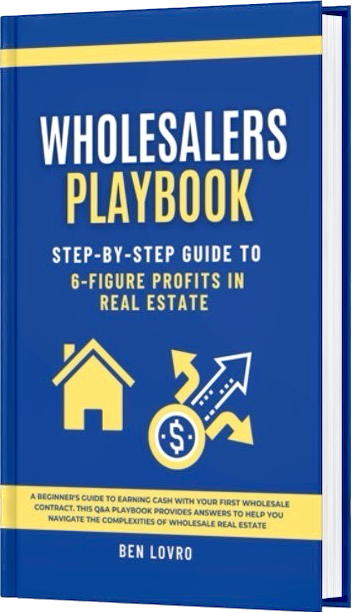FREE WHOLESALING COURSE
Get The Exact Blueprint To Launch And Grow A Successful Real Estate Wholesaling Business


Determining Property Market Value for Wholesaling
Introduction
Accurately determining property market value is pivotal. This comprehensive guide provides an in-depth analysis of the methods and strategies essential for evaluating property value, ensuring wholesalers can make informed decisions and successful investments.

Key Factors Influencing Property Market Value
Understanding the various elements that affect property market value is crucial. This section delves into factors such as location, property condition, market trends, and economic indicators, which collectively play a significant role in valuation.
Location is arguably the most influential factor. The property's proximity to essential amenities, quality of local schools, crime rates, and overall neighborhood appeal significantly affect its value. A prime location in a well-developed area with easy access to public transportation, shopping centers, and entertainment venues generally commands higher prices.
Property condition also plays a vital role. Well-maintained properties with modern amenities and aesthetic appeal are more likely to attract buyers and yield higher market values. Conversely, properties in need of repair or renovation often see a reduction in value, though they may present lucrative opportunities for investors looking to renovate and flip.
Market trends are another critical factor. The real estate market is dynamic and influenced by various macroeconomic indicators, including interest rates, housing demand, and the overall health of the economy. For instance, a seller's market, characterized by high demand and low supply, can drive up property values, whereas a buyer's market might lead to reduced prices.
Lastly, economic indicators such as employment rates, GDP growth, and inflation rates indirectly impact property values. A robust economy typically encourages real estate investment and boosts property values, whereas economic downturns can lead to decreased demand and lower prices.
Utilizing Comparative Market Analysis (CMA)
Comparative Market Analysis (CMA) is an indispensable tool in the arsenal of property valuation, especially crucial in the context of real estate wholesaling. This method involves a systematic process of evaluating similar properties in a specific area to determine the market value of a property in question. The effectiveness of CMA hinges on the selection of comparable properties, often referred to as 'comps'. These are properties that are not only in proximity to the subject property but also share similar characteristics such as size, condition, age, and features.
To conduct an effective CMA, it’s essential to gather detailed information about recent sales, current listings, and properties that failed to sell in the target area. This data provides a comprehensive picture of the local market, allowing wholesalers to understand the demand and pricing trends.
The next step involves a thorough analysis where each comp is examined against the subject property, adjusting the value for differences in features, size, and condition. This comparative approach offers a realistic estimate of what the market is willing to pay for a property, an insight invaluable for wholesalers.
Interpreting the results of a CMA requires a nuanced understanding of the market dynamics. Factors such as seasonal fluctuations, economic conditions, and local developments can significantly influence property values. Wholesalers must consider these broader market trends when analyzing CMA results to ensure accurate valuation.
The Role of Property Appraisals
Professional appraisals stand as a critical component in the real estate wholesaling process, offering an unbiased and comprehensive assessment of a property's market value. These appraisals are meticulously conducted by certified professionals who possess a deep understanding of the real estate market and valuation principles.
The procedure typically involves a thorough inspection of the property, where appraisers assess various attributes such as size, condition, location, and unique features. They also consider external factors like the neighborhood's desirability, local market trends, and recent sales of comparable properties. This holistic approach ensures a fair and accurate estimation of the property's worth.
In the context of wholesaling, these appraisals are invaluable. They provide wholesalers with a reliable benchmark for pricing properties, significantly enhancing the credibility of their offers. Understanding the true value of a property enables wholesalers to negotiate deals more effectively, particularly when communicating with sellers and potential buyers. It also aids in avoiding overpaying for a property or underestimating its potential on the market.
Furthermore, appraisal reports serve as powerful tools in discussions with investors and financial institutions. They offer concrete evidence of a property's value, which is crucial for
Impact of Market Trends on Property Valuation
Market trends play a pivotal role in shaping property values, acting as a barometer for the real estate sector's health and direction. The intricate interplay of supply and demand is fundamental to this dynamic.
When demand for properties in a particular area outstrips supply, it typically leads to an increase in property values. Conversely, if the market is saturated with properties but buyer interest is low, values tend to decrease. This supply-demand balance is influenced by several factors, including economic conditions, demographic shifts, and consumer confidence.
Interest rates are another critical factor in this equation. Lower interest rates make borrowing more affordable, often stimulating demand in the property market. Prospective buyers find it easier to secure mortgages, leading to increased property purchases and, consequently, an uptick in property values. On the other hand, when interest rates rise, borrowing costs escalate, potentially cooling down the market and exerting downward pressure on property values.
Economic conditions play a substantial role as well. A robust economy generally boosts consumer confidence and purchasing power, leading to more real estate transactions and higher property values. In times of economic downturn, however, reduced consumer confidence and spending power can lead to a decline in market activity and property values. Additionally, local economic factors such as employment rates and income levels can significantly impact property values in specific regions.
Advanced Techniques for Property Valuation
Among these sophisticated methodologies, the income approach stands out as particularly relevant for investment properties. This technique evaluates a property’s value based on the income it generates or is projected to generate. By analyzing rental income data, occupancy rates, and the potential for future income, wholesalers can estimate a property's worth more accurately, particularly when dealing with rental or commercial real estate.
Another pivotal advanced method is the replacement cost approach. This strategy determines a property’s value based on the cost of reconstructing the property in the event of its total loss, minus depreciation. It considers current prices for labor, materials, and other construction-related expenses, providing a tangible benchmark for property valuation. This approach is especially beneficial when dealing with unique or specialty properties, where comparative market analysis may not yield reliable results due to a lack of similar properties.
Furthermore, leveraging real estate analytics tools has become increasingly crucial in today’s digital age. These tools utilize big data and advanced algorithms to analyze market trends, demographic shifts, and economic indicators, offering a comprehensive and dynamic perspective on property valuation. By integrating these tools into their evaluation process, wholesalers can gain insights from a broader range of data points, leading to more informed decision-making.
Collectively, these advanced techniques provide a more robust framework for property valuation, enabling wholesalers to navigate the complexities of the real estate market with greater confidence and precision. By embracing these methods, they can uncover opportunities that might be overlooked with basic assessment strategies, ultimately leading to more successful and profitable wholesaling endeavors.
Legal Considerations and Compliance
For wholesalers, who often navigate the complex terrain of buying and selling properties without actually owning them, being well-versed in the legalities that govern property valuation can be the difference between a lucrative deal and a costly misstep. This understanding extends to several key areas, chief among them being zoning laws, property rights, and local regulations compliance, each of which significantly impacts property value.
Zoning laws, which dictate the use of properties in specific areas, can profoundly influence property values. For instance, a property zoned for commercial use might hold greater value than one zoned for residential use, depending on the location and market demand. Wholesalers must be adept at recognizing how these zoning classifications can affect the valuation of a property and, consequently, the potential profitability of a deal.
Similarly, property rights—encompassing aspects like mineral rights, water rights, and air rights—add layers of complexity to property valuation. A thorough understanding of these rights is crucial as they can significantly enhance or diminish the value of a property. For example, owning a property with valuable mineral rights could exponentially increase its market value, making it an attractive prospect for investors.
Lastly, compliance with local regulations plays a vital role in property valuation. Local ordinances on property improvements, historical preservation, environmental regulations, and building codes can all alter a property's worth. Wholesalers need to be cognizant of these regulations and their implications on property value. A property that requires extensive renovations to meet building codes, for example, might be valued lower due to the additional investment needed.
Therefore, for wholesalers, mastering the legal aspects of property valuation is not just about adhering to the law—it's about leveraging this knowledge to accurately assess and capitalize on property values, ensuring compliance, and maximizing returns in their wholesaling endeavors.
Real World Case Studies
We provide real-world examples where accurate property valuation led to successful wholesaling deals, highlighting the practical application of the methods discussed.
Best Practices for Accurate Property Valuation
To ensure precise property valuation, certain best practices must be followed. We outline essential steps, including thorough research, continuous market monitoring, and consulting with real estate experts.
Future Trends in Property Valuation
Keeping an eye on the future, we discuss emerging trends in property valuation, such as the growing influence of technology and data analytics, and how they will shape wholesaling strategies.
Conclusion: Mastering Property Valuation for Wholesaling Success
Concluding the guide, we emphasize the importance of mastering property valuation in wholesaling and its role in driving successful real estate transactions.

Search Blog
Year
Month



